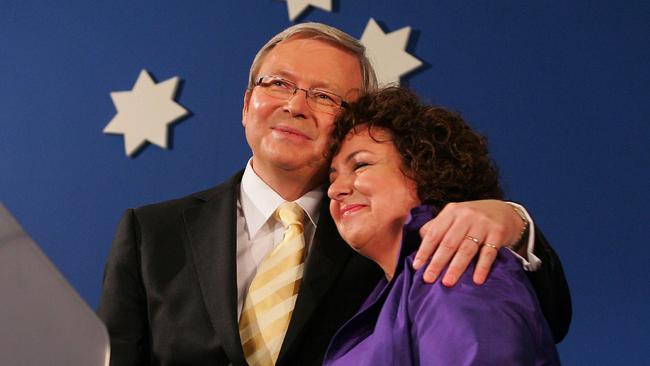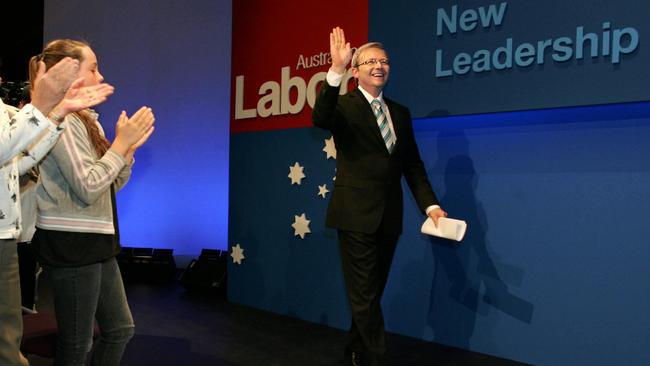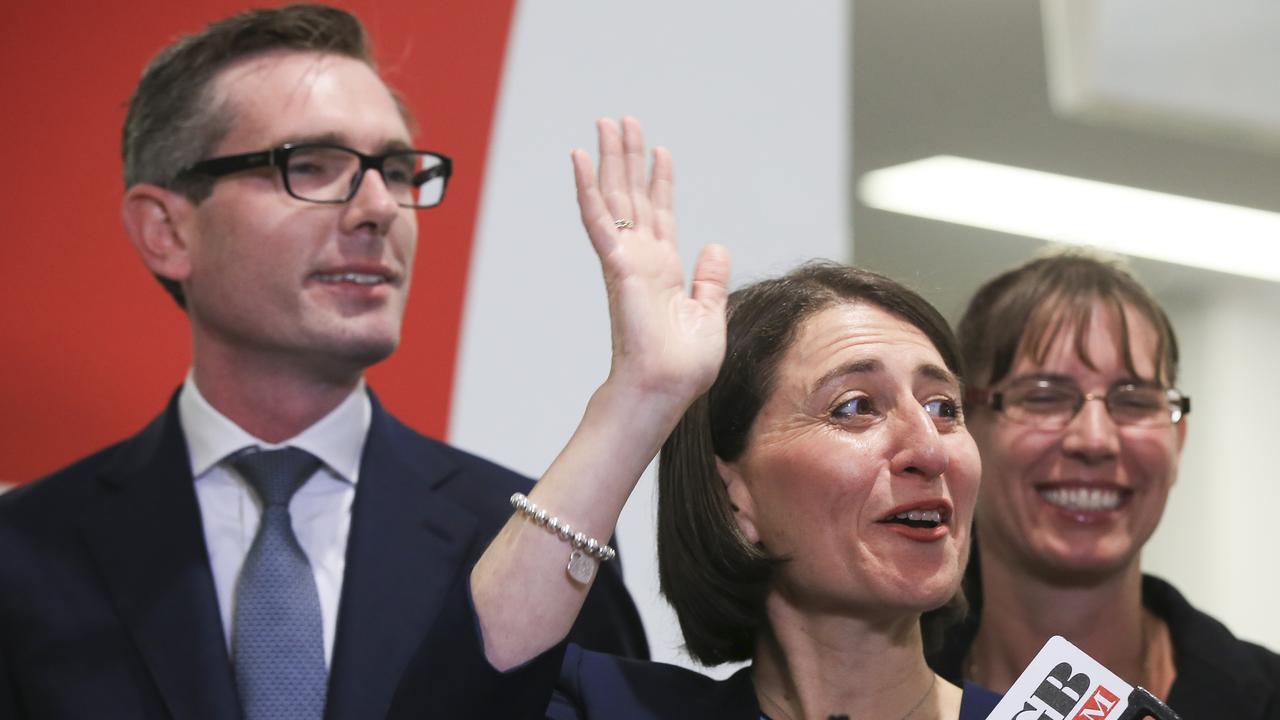Kevin Rudd’s top 10 triumphs as PM have little connection with reality


Kevin Rudd should not be allowed to get away with his delusional triumphalism 10 years after he won power, ending almost three decades of mainly good government in this nation and precipitating a decade of disaster.
We would expect his assessment of his own prime ministership to be self-serving — fair enough — but he should maintain some connection with reality. Let me run through his claimed “top 10” achievements just for a little balance.
His first claimed achievement is defeating John Howard. At least this one is factually indisputable. Yet he cannot seriously suggest this was good for the country — his argument seems more tribal, that it was good for Labor, saving them from a generation in opposition. Howard made his own mistakes — primarily, perhaps, not organising an orderly transition to Peter Costello — and Rudd campaigned cleverly, disguising himself as Howard Lite. But as someone who watched Rudd closely while spending the second half of the Howard government working for then foreign minister Alexander Downer, I was surprised voters didn’t see through Rudd. It took them two years longer than would have been ideal.
Rudd’s second claim is the most important one for the history books and the only real possibility of his administration claiming a significantly beneficial impact. Rudd and his treasurer Wayne Swan like to say their stimulus saved the nation from recession — even as they continue to deride each other as hopeless economic managers! That Australia narrowly dodged recession is a fact but their efforts to take credit are highly questionable. Many reputable economists would now say monetary policy and the continued strong demand from China for our mineral exports are what carried us through. Regardless the stimulus was overblown — spending far too much on unproductive programs long after the global financial crisis had passed — so that it is now more important for the debt and deficit burden holding the nation back.
By his third point Rudd is starting to struggle, claiming credit for the G20 and trying to slight his successors for not taking advantage of it. Rudd’s foreign policy was problematic — he managed to get the US, Indonesia, China, India and even New Zealand offside. His role in the G20 is remembered mainly for his malicious, unwise and irresponsible leak against George W. Bush — suggesting he didn’t know what the G20 was — that set back relations with the US.
Rudd also claims national skills and productivity achievements that, among other things, “preserved” the car manufacturing industry. A quick look for Holden and Ford tells you all you need to know about that claim.
Again on foreign policy, Rudd claims credit for exiting Iraq and Afghanistan — obviously US policy drove events in these nations rather than Australia’s — but anyone who seriously suggests the complete withdrawal of coalition forces from Iraq was wise foreign policy clearly hasn’t noticed the rise of Islamic State and the tragic surrendering of the difficult, costly but hard won gains in the eight years after the Iraq invasion. Whatever you think of the invasion, the withdrawal was disastrous. Besides, how can Rudd even mention foreign policy without acknowledging the disaster of dismantling the Pacific Solution, triggering a chaotic revival of the people-smuggling trade, unleashing trauma and tragedy, and undermining the integrity of our immigration system.

Number six is a doozy — ratifying Kyoto. This is something Howard could have done; especially given Australia was one of the few countries to meet its Kyoto targets. Yet it meant nothing at the time. It was a symbolic gesture that helped Rudd get elected and saw him win applause from the global climate set. The trouble is he did nothing to follow through, failing to implement his emissions trading scheme and ducking the obvious opportunity of taking it to a double dissolution election in 2010.
In his seventh point Rudd portrays his education “investments” as an achievement. Much of the spending he refers to is the wasteful BER program that was part of his stimulus overreach. He is right to claim credit, however, for the My-School program that helped with transparency and accountability, as well as the national curriculum which, though questionable, is widely valued.
Number eight is hospital and healthcare funding. Remember at one stage Rudd would stage a hospital visit almost every day spruiking this nebulous plan to pump more money into hospitals. It was bureaucratically complex, got caught up in the usual states versus federal argy bargy, and didn’t survive.
Rudd’s audacity in his ninth point is astonishing. This is where he claims credit on “social justice” issues. Among these is the National Disability Insurance Scheme — more a Julia Gillard initiative than his — which remains unwieldy and unfunded. While its aims are laudable — everyone wants better services for people with disabilities — the scheme is a burden to be sorted out by governments yet to come. But Rudd also lists “fighting for marriage equality” — this is laughable. Labor had six years to do something on gay marriage — Rudd opposed it early and did nothing later. It must pain him and others to see this “progressive” reform being implemented under a Coalition government.
On number 10 we can be generous. The apology to indigenous Australians is a little bit of symbolic history that Rudd will always own. It was cathartic for the nation. We need to be honest, however, and admit that in practical terms it achieved nothing. Yet, to be scrupulously fair, the process of annual reporting on the Closing the Gap goals is a useful measure to keep the nation focused on doing better in this regard. It might be Rudd’s greatest ongoing, positive legacy.
The real lesson of today’s anniversary is that voters should not throw away sound government just because they are feeling comfortable and relaxed. And when a bright, shiny new leader bobs up, he or she should be subjected to serious scrutiny before any election, to ensure they really believe in and understand the promises they are making.




To join the conversation, please log in. Don't have an account? Register
Join the conversation, you are commenting as Logout